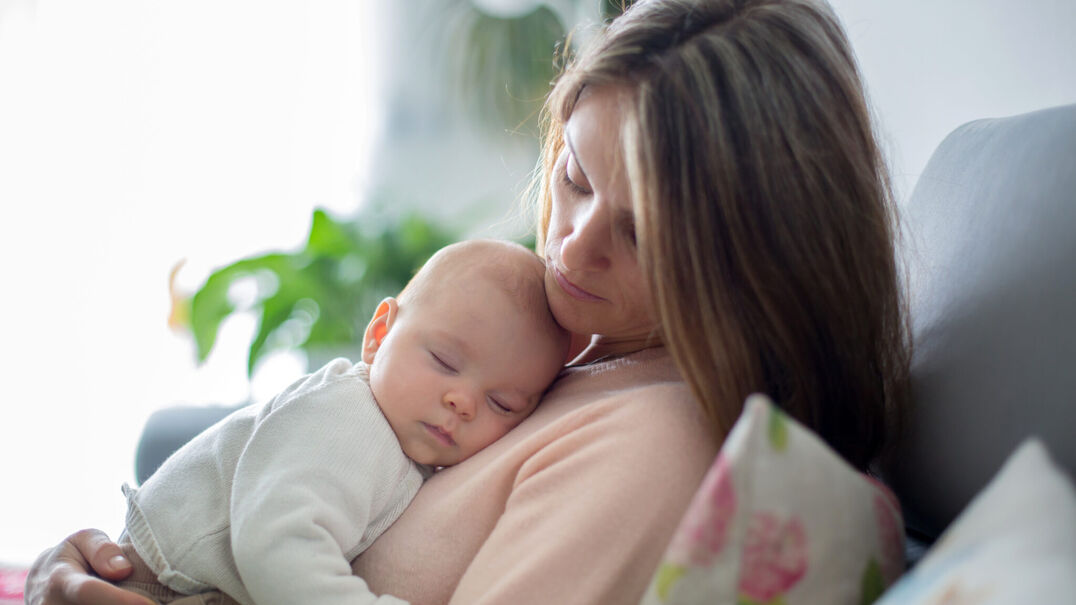The 16 Days of Activism Against Gender-based Violence was started by activists in 1991 at the inauguration of the Women’s Global Leadership Institute.
30 years later and it has grown to a large international campaign supported by organisations around the world calling for an end to men’s violence against women.
Here at Berry Street we’re dealing with the impacts of this violence every day. In fact, in the last year, we’ve seen a 43% increase in people using our family violence services.
Another stark fact is we see many, many children and young people traumatised from the fallout of family and domestic violence throughout our services. So while Berry Street wholeheartedly supports the 16 Days of Activism campaign, below we highlight 16 impacts of family violence on children that you may not know.
Read on to find out more about how family violence affects kids, signs to look out for, and how you can help.
Impact 1
25 November is the International Day for the Elimination of Violence Against Women and it is paramount we stop the incredible harm being done to women in Australia today. One woman is killed nearly every week and 1 in 4 women have experienced family and domestic violence in this country.
Did you know that children are affected in large numbers too? 40% of children have been exposed to family and domestic violence during childhood and 32% have experienced physical abuse, according to the Australian Child Maltreatment Study.
Children must be considered as victim survivors in their own right.
Impact 2
Did you know that even in utero, a baby can be detrimentally affected by family violence?
When a woman’s heart rate is elevated due to fear, a baby also experiences an elevated heart rate and a surge in cortisol, meaning the baby is actually feeling that stress. The stress from a violent relationship can go on to affect a baby’s ability to develop as they should. Low birth weight and premature birth can also be associated with domestic and family violence during pregnancy.
Impact 3
Did you know children are present in almost one in three family and domestic violence incidents attended by police?
Imagine how children like Mila* feel when this happens. Mila grew up in a very violent home. Both her mother, Leigh*, and her stepdad, Dan*, had a history of extremely violent behaviour and had frequent contact with police. Mila witnessed repeated and severe violence against her mother, and was on the receiving end of violence too.
Read more about Mila’s experience of violence.
Impact 4
Did you know children in families where family and domestic violence is present are often used by the person using violence - the perpetrator - in tactics of control?
Whether the children are on the receiving end of violence or not, they may be used to further undermine, manipulate or control their parent or carer, usually their mum. This can damage their relationship with mum, as they are left confused, questioning and worried about whether the negative things they’ve been told about her are real.
Impact 5
Did you know that filicides (where a parent or step-parent kills a child) are the second most common form of family and domestic violence homicide, following intimate partner homicide?
This is truly shocking and doesn’t bear thinking about. But to truly address the scourge of violence in this country, we need to grapple with the reality of it.
Learn more about Berry Street’s approach to addressing family and domestic violence and how you can join us in breaking the cycle.

Impact 6
Every child deserves the chance to learn and have a happy school life but did you know experiencing family and domestic violence can impact a child’s ability to learn at school?
Kids will often be hyper-alert to danger which means they can’t concentrate in the classroom and start to fall behind. Their behaviour is not always recognised as a fear response and they end up in trouble which makes it even harder for them. They are also likely to miss a lot of school given the chaos of their home-life.
Impact 7
Did you know there are signs to look out for to consider whether a child may be experiencing family and domestic violence?
Some of the signs include:
Being very passive and compliant, or “acting out” and being non-compliant
Being very wary or distrustful of adults
Showing fear of particular people and places
Poor sleep and high levels of emotional instability
Becoming fearful when other children cry or shout
Jumping or covering their ears at loud/unfamiliar noises
Developmental regression like reverting to bed-wetting
Bruises, burns, sprains, dislocations, bites, cuts
Broken bones, especially in young babies where it’s unlikely to have happened by accident
See a full list from Safe + Equal here
If you think someone you know, including a child, may be experiencing family and domestic violence, reach out to The Orange Door for support in Victoria or call 1800 Respect on 1800 737 732 or visit the website.
Impact 8
Did you know that even if children are not on the receiving end of violence themselves, knowing that one parent is hurting another causes significant harm, including to their brain development?
In the past it was thought that as long as the child was physically safe and with their safe parent - usually mum - they’d recover without any extra help.
But now we know kids often need special support to help them avoid the poor mental health, behavioural issues, learning problems, relationship issues and chronic health conditions that can result from being present in family and domestic violence situations.
Impact 9
Did you know that children with disabilities are at increased risk of experiencing abuse, neglect and other forms of maltreatment, perpetrated by a parent or carer?
International studies have shown that children with physical, sensory, intellectual and mental disabilities are twice as likely to experience violence than children who do not have disabilities.
Impact 10
Did you know kids experiencing or witnessing family and domestic violence often think it’s their fault? They worry that something they said or did has caused the violence.
Like 10-year old Amar*. He was working with a special therapist at Berry Street after he and his mum, Gurpreet*, experienced physical, verbal and emotional violence from Amar’s father, Kai*.
The therapist had a hunch that Amar was blaming himself and commented, “lots of children and young people I see think it’s their fault that Dad gets angry.”
Amar’s eyes went wide, and he said, “that’s what I think too.” He also revealed that he is worried all the time about “making Dad angry again”...
Read Amar’s story

Impact 11
Children are amazing and are insightful, and they pick up way more than we sometimes would like. Even when parents are doing a pretty good job of parenting, children tend to pick up on habits they see.
But when children are experiencing violence or the impacts of violence at home, they may replicate that violence… and that might have ongoing impacts. So it might be things like children noticing that their mum has to seek permission from their dad to spend money, and then that develops with the child, so they think all women must seek permission from men to spend money. Or it might be that children notice a hole in the wall. The non-offending parent may try to hide these things from their kids to protect them, but kids pick up on it... Kids pick up on lots of stuff.
One of the things that we know about children is that when they don't see and understand something, they will fill in the gaps. So it might be that they've got a story in their head that's way worse than what actually happened.
Learn more in Episode 4, Addressing Family Violence from the Stories from Berry Street podcast.
Impact 12
Did you know the current housing crisis in Australia means children growing up in homes where family and domestic violence is present are particularly vulnerable to homelessness?
45% of women and girls seeking homelessness assistance are fleeing family and domestic violence and, in 2022/2023, 37,825 children came through the doors of homelessness services.
This is shocking in and of itself, but what is really confronting is that the threat of homelessness is a key reason why women stay and endure ongoing violence which means continued detrimental impacts on children too.
Impact 13
Did you know children and young people are often invisible and become ‘forgotten’ or ‘silent’ victims when it comes to family and domestic violence?
Berry Street’s Y-Change team, a social change platform for young people aged 18 to 30 with lived experience using community services, have recently co-created important research around children and young people’s experiences of family and domestic violence and aimed to better understand their needs.
The story of children and young people’s experiences of violence is typically told by professionals. But as our project and article explore, when professionals share power, platforms and space with lived experience, we can write our own narratives and change the course of the story for other children and young people.
Impact 14
Did you know that family and domestic violence increases in the lead up to Christmas?
This means that while most kids are getting excited about what Santa will bring, for some kids, Christmas means greater threats and terror at home… No fun and festivities… No tree to decorate together as a family… No piles of presents from Santa on Christmas morning.
And for the more than 12,000 children in Victoria who can’t live safely at home due to violence, abuse and neglect, Christmas can be a difficult and painful time of year.
Buy a Gift From the Heart so that every child in our care gets a special personalised gift this Christmas.
Impact 15
Did you know that in many cases of family and domestic violence, children are used by the perpetrator to direct technology-facilitated abuse at the victim survivor?
This could look like:
Monitoring and stalking, where the perpetrator uses technology to learn about a new home location or asks a child to reveal the adult victim survivor’s location or activities
Using technology to publicly insult the adult victim survivor where the child could see it
Sending the child messages insulting the adult victim survivor
Telling the child they will take them away from their safe parent
The perpetrator prohibiting or blocking phone and/or online communication between an adult victim and child.
Impact 16
Did you know there are ways you can help if you think a child you know is experiencing harm from family and domestic violence?
1800 Respect is there to support you, talk through your concerns and make recommendations on how to get help for that child.
If a child tells you directly that they are experiencing harm, it’s really important that you listen, believe them and contact 1800 Respect to get help. Call 1800 737 732 or visit the website.
Children and young people can also go directly to the Orange Door in Victoria for special support designed for kids. Find out more on their website.
*Names changed for privacy. The models pictured are not connected to the case study.





